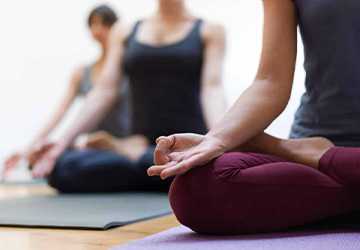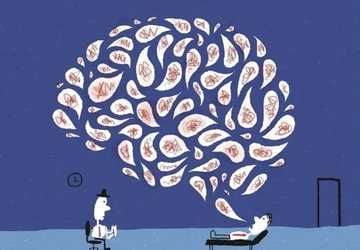How to Manage Stress Effectively
In today's fast-paced world, stress management is more critical than ever. The challenges we face in our daily lives are often overwhelming and trigger strong emotions that lead to the adverse effects of stress on the mind and body. With the emergence of COVID-19, public health measures, especially physical distancing, can leave us feeling isolated and alone, increasing our stress levels.
The first step in managing stress is to accept that it is a part of life, and we need to learn how to reduce physical and mental stress effectively. After a traumatic event, most people experience lingering reactions and intense grief that is difficult to deal with.

Therefore, this article offers tips to help you reduce stress and related symptoms and maintain overall health.
How to free your body and mind from stress?
We need proper guidance and planning to counteract the adverse effects of stress on the mind and body. Many ways to eliminate stress include exercise, meditation, healthy eating habits, and more. Let's discuss the main methods in detail.
1. Exercise regularly
If you're wondering how to reduce physical and mental stress, the number one answer is exercise. Regular exercise is one of the most effective ways to manage stress. Not only does it help to relax your mind and body, but it can also improve your mood and overall health.
Two and a half hours of moderate exercise per week is recommended, which may include activities such as brisk walking or cycling. Or, if you prefer more vigorous activity, you can do 75 minutes of exercise, such as swimming, jogging, or exercising.
Setting achievable fitness goals is critical to sticking to your exercise routine and not giving up. Remember, even a little exercise is better than none at all. So why start with 10 minutes of walking each day and gradually increase?
2. Guided Meditation
Guided meditation is quickly becoming a popular solution to everyday stress. With so many online resources, practicing this form of meditation has been challenging. So how do you manage stress with mindfulness and meditation?
Guided meditation offers a structured way to achieve a state of relaxation by focusing on specific images, sounds, or sensations. This is ideal for pain relief as it only takes a few minutes and can be done in your home.
3. Practice deep breathing
Deep breathing is another excellent relaxation technique that can help you reduce stress and anxiety. A few deep breaths can help activate the parasympathetic nervous system, responsible for the body's recovery and digestive responses. This helps reduce the sympathetic nervous system activation accountable for triggering the fight-or-flight response. But how do you manage stress with mindfulness and meditation?
Find a quiet, comfortable place where you won't be disturbed, and practice deep breathing. Sit or lie down in a relaxed position and start breathing deeply. Start by breathing deeply through your nose for five seconds. Hold your breath for two seconds, then exhale slowly through your mouth for five seconds. Repeat this process several times until you feel calm and composed.
Deep breathing is a simple yet powerful tool to manage stress and reduce anxiety. Incorporate this technology into your daily routine and experience a sense of calm that will positively impact every area of your life.

4. Maintain a healthy diet
Eating a balanced diet should be a top priority for anyone looking to improve their health. It's a fundamental pillar of a healthy lifestyle that can help you feel better physically, emotionally, and spiritually. Eating a balanced diet gives your body the essential vitamins, minerals, macronutrients, and nutrients needed to function correctly.
But what exactly is a balanced diet? Your meals should include nutrient-dense foods such as lean protein, vegetables, fruit, and whole grains. These foods can provide the energy and fuel you need to get through the day while supporting your immune system and overall health. Incorporate a balanced diet into your daily life; it can profoundly affect your physical and mental health.
Eat a balanced diet, and it is essential not to skip meals. This can deprive your body of the nutrients it needs, affecting your mood and increasing stress levels.
So consciously try to choose healthier options and avoid foods that can damage your health.
5. Manage social media time
Excessive and unfiltered exposure to social media sites can be more stressful than we think. Not only do we experience things that distract us, but we may miss out on other meaningful activities, such as spending quality time with friends, soaking up the sun, or reading a good book. Additionally, late-night use of social media can negatively impact our sleep.
Studies have shown that excessive social media use at night can increase stress levels, making it harder for us to relax and get a good night's sleep, affecting our overall health and mood. Knowing the potential risks and trying to strike a healthy balance between virtual and actual events is crucial.
Final result
Stress is a universal problem everyone faces in life, and it can cause anxiety, depression, and helplessness that can be overwhelming. Public health responses can increase stress and isolation, especially among people with mental health problems.
Given the potential impact of stress on our health, it's important to learn healthy coping mechanisms, such as managing stress through exercise, eating a balanced diet, and getting the proper care and support at the right time. This can help reduce negative anxiety-related symptoms and promote overall mental health and resilience, improving your quality of life.







